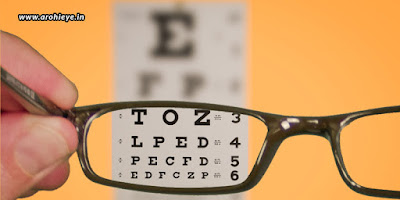Any kind of surgery in itself
seems to be a difficult job; and then, the care to be taken after the procedure
is intense and long. Same is the case with cataract surgery. While your cataract surgeon will let you know all
the precautions and care that you must take after the surgery, we are also here
to help you with some general care tips. But, before we get into the care tips,
let us understand what we are going to experience after the surgery.
Arohi Hospital is one of the best Eye Care Specialist Hospital in Oshiwara, Andheri West Mumbai. Our compassionate healing methods & intensive patient care makes us the Best Eye Hospital in Mumbai.
Sunday, 24 February 2019
Thursday, 7 February 2019
Low Vision – All you Should Know - Arohi Eye Hospital
February has been designated as “Low Vision Awareness Month”
by the National Eye Institute, with the purpose of raising awareness about
visual impairment, and rehabilitation for those living with low vision. So many
lakhs of people aged 40 and above are living with low vision in India every
year. Low vision means having 20/70 vision or even poorer than that, with
symptoms ranging from blurred vision, tunnel vision, or blind spots.
According to the World Health Organization, these are the
ratings given to different proportions of vision.
- 20/30 to 20/60: Mild vision loss, but near normal vision
- 20/70 to 20/160: Moderate low vision
- 20/200 to 20/400: Severe low vision
- 20/500 to 20/1,000: Profound visual impairment
- Less than 20/1,000: Near-total blindness
- No light perception whatsoever: Total blindness
Generally, people with vision that can't be corrected beyond
a vision of 20/200, or those who have less than 20% of their visual field
remaining are considered legally blind. So, if you have vision problems, it
could be a concern for you, and you must avoid reaching the stage of 20/200.
Our vision changes with age. As we age, our eyesight
worsens. This is why the major population of people with vision loss is older
adults. This is the reason we see older adults not being able to enjoy even the
simplest tasks like reading, cooking, and any kind of up-close work. But, to
make their lives easier, many helpful aids are available to assist them and
help them make the most of the vision they still have, making it easy to enjoy
their lives. One of the most important ways to enhance vision for such people
is magnification. Magnifying and telescopic lenses are used as low vision
devices and aids for those who love to read and do tasks close to the eye.
Other adaptive devices help to maximize the remaining vision that a patient
has. Also, those who wish to use the computer can take assistance from voice
command and computer magnification settings. There are many other medications
and surgical alternatives available to help slow the progression of low vision,
and provide as much vision for as long as possible. However, this depends on
the cause behind low vision. For example, those suffering from retinitis
pigmentosa and other retinal-based conditions are provided with retinal
implants that can help restore vision. Efforts are still being put in to bring
many other innovations and breakthroughs in the field of low vision to offer
hope and bring happiness in the lives of those suffering from the ailment. God
forbid, if you are suffering from any such vision loss problems, you need the
treatment of an eye specialist in Andheri West Mumbai, one like Arohi Eye Hospital, who can diagnose your
condition and prescribe the right kind of medication and treatment for you.
We have understood what low vision is, what the symptoms
are, what the different types are, and how it can be treated. But, what is the
main cause of low vision? There could be many factors like glaucoma, diabetic
retinopathy, age-related macular degeneration, retinitis pigmentosa, traumatic
brain injury, cataracts, and amblyopia. If you are worried about any of these
symptoms, have your eyes checked by an eye checkup clinic in Oshiwara Mumbai to diagnose any problem at the earliest
and treat it accordingly.
Subscribe to:
Comments (Atom)

